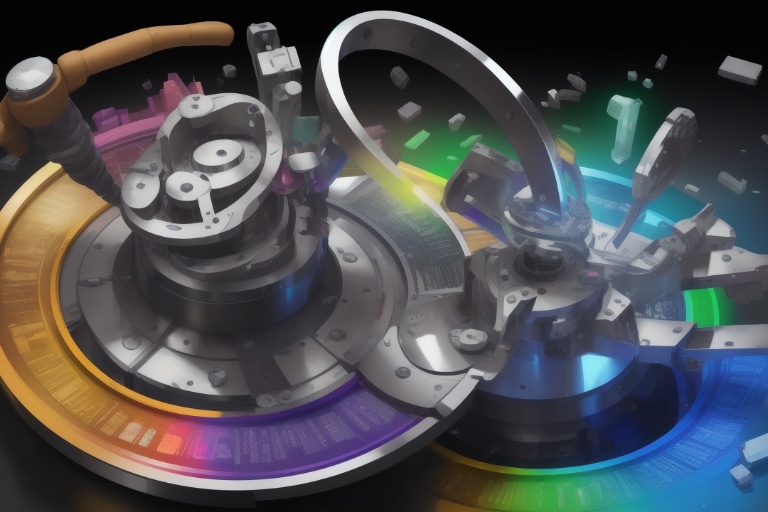Artificial intelligence (AI) and machine learning (ML) are ever-evolving fields that continue to push the boundaries of technology, transforming the way we live, work, and think. As we explore these technological advancements, we often turn to popular culture and the arts for insight into their implications and future trajectory. A prime example that intertwines the philosophical with the imaginative is the film "A.I. Artificial Intelligence." Directed by Steven Spielberg and with creative input from Stanley Kubrick, this 2001 film presents a compelling vision of a future where robots become nearly indistinguishable from humans, raising poignant questions about ethics, emotions, and the nature of consciousness itself. This article delves into the film's narrative and examines its relevance to current trends in AI and ML.
Artificial intelligence (AI) and machine learning (ML) are ever-evolving fields that continue to push the boundaries of technology, transforming the way we live, work, and think. As we explore these technological advancements, we often turn to popular culture and the arts for insight into their implications and future trajectory. A prime example that intertwines the philosophical with the imaginative is the film "A.I. Artificial Intelligence." Directed by Steven Spielberg and with creative input from Stanley Kubrick, this 2001 film presents a compelling vision of a future where robots become nearly indistinguishable from humans, raising poignant questions about ethics, emotions, and the nature of consciousness itself. This article delves into the film's narrative and examines its relevance to current trends in AI and ML.
Exploring Humanized AI Through Spielberg’s Lens
"A.I. Artificial Intelligence" takes viewers on an extraordinary journey through a futuristic landscape where the integration of robots into daily human life has become commonplace. The film tells the story of David, a childlike android imbued with the ability to love, challenging the audience to reconsider the essence of human experience. Spielberg's direction, complemented by Kubrick's vision, creates a complex tapestry of emotion and science fiction — a reflective mirror held up to our own society's fascination with and apprehension about AI.
The Cinematic Force of "A.I. Artificial Intelligence"
The film unites drama, science fiction, and deep philosophical inquiry, engaging its audience on various levels. Spielberg is known for his prowess in storytelling, and in "A.I. Artificial Intelligence," he deftly weaves a narrative that is as emotionally rich as it is visually arresting. The performances from actors like Haley Joel Osment, who plays David, bring a nuanced depth to the characters, offering viewers a visceral glimpse into a world where the lines between human and machine are irrevocably blurred. This synergy of compelling storytelling and remarkable visual effects not only entertains but also amplifies the film's underlying queries about our future coexistence with AI.
The Ethical Conundrums of AI Personhood
Spielberg's "A.I. Artificial Intelligence" does more than just showcase the possibilities of future technology — it challenges us to confront the moral complexities that arise with the creation of machines possessing human-like emotions and desires. The narrative prompts us to question where we, as a society, draw the line between artificial and authentic, and what responsibilities we have towards beings that can feel and express as we do, albeit artificially. As the field of AI advances, these ethical considerations become more pressing, urging us to anticipate and address the potential consequences before they manifest in reality.
The dialogue initiated by "A.I. Artificial Intelligence" continues to be relevant today, as we witness rapid advancements in AI and ML that are increasingly narrowing the gap between science fiction and scientific reality. Contemporary AI systems exhibit capabilities once thought to be exclusively human, from composing music to diagnosing diseases. While these developments are undoubtedly exciting and beneficial, they also necessitate an ongoing examination of the ethical implications. This is precisely the kind of conversation that "A.I. Artificial Intelligence" invites us to have, one that is critical for ensuring responsible innovation in AI.
The Lasting Impact and Legacy of "A.I. Artificial Intelligence"
Nearly two decades after its release, "A.I. Artificial Intelligence" remains a pivotal work in the cinematic exploration of artificial intelligence. The film's lasting impact stems from its thought-provoking narrative that continues to stir debate and reflection about our increasingly AI-infused world. With each passing year, the themes present in the film take on new dimensions and urgencies, reinforcing the necessity for transparent, ethical practices in AI development. Spielberg's and Kubrick's collaboration left us with a masterpiece that resonates with audiences and tech enthusiasts alike, reminding us that the questions raised within its frames are not just theoretical but vital to the responsible stewardship of technology.
As AI technology continues to advance and plays a growing role in various aspects of our lives, films like "A.I. Artificial Intelligence" become more than just entertainment — they serve as a lens through which we can explore and understand the potential and pitfalls of these transformative developments. This insightful perspective from the world of cinema enriches our own narrative as we navigate the exciting yet uncharted waters of AI and ML.
In sum, "A.I. Artificial Intelligence" is more than a film; it is a poignant catalyst for discussion about the future of robotics, consciousness, and the ethical implications of creating machines that can emulate human emotions. As AI and ML continue to evolve and integrate into society, Spielberg's film remains a timeless and profound piece that urges us to carefully consider the profound implications of these revolutionary technologies.
Information for this article was gathered from the following source.




